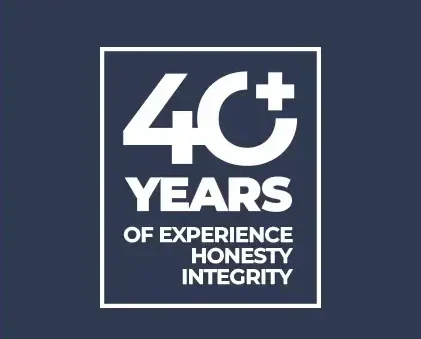
Northern Colorado
Probate Lawyer
Northern Colorado Probate Attorney
Serving Fort Collins, Loveland, and Larimer Counties
Probate is the legal process for distributing an estate after someone dies. Probate might only take a few months for smaller estates, but others can get stuck in probate for a long time. Ores Law has represented many personal representatives and family members in the process and is only a phone call away. Please reach out if you need assistance from a Fort Collins Loveland Larimer County Northern Colorado probate attorney.
Ores Law
Overview
of Probate
The personal representative does most of the work in probate. The deceased’s will should identify the person who will serve in this role, but a judge can appoint someone else if this person isn’t qualified or declines to serve.
The personal representative has important duties:
- Identifies and gathers estate assets
- Appraises the value of assets
- Keeps estate assets safe
- Notifies creditors of the death
- Reviews creditor claims for payment
- Accepts or rejects creditor claims
- Litigates claims on behalf of the estate
- Files taxes and pays taxes for the estate and the deceased
- Distributes assets to creditors according to the will
Ores Law
How a Lawyer Helps
the Personal Representative
Issues often arise during probate which might require the help of a lawyer:
- Handling assets that might fluctuate in value, like cryptocurrency
- Purchasing insurance to keep assets from declining in value
- Determining which claims to accept or reject
- Identifying which assets to sell if there isn’t enough cash to cover creditor claims
- Dealing with unhappy family members
A personal representative might be sued for performing their job poorly. It doesn’t happen often, but disappointed family members might think the representative wasted assets or treated them unfairly. You should get expert legal advice from Ores Law.
Ores Law
Other
Probate Issues
Attorney Nicholas Ores can assist with many types of probate issues, including:
- Will contests. Maybe the deceased lacked capacity when they made or changed their will, or possibly they made changes under duress. For example, your elderly mother might have made a last-minute amendment to her will leaving half the estate to her nurse. Family members can challenge the will’s validity in probate.
- Breach of fiduciary duties. For example, a personal representative might purchase estate assets below market value or use estate assets for their personal needs. You can hold them liable by suing them.
- Appointment of the personal representative as ineligible. The family might want someone else to serve, or there might be no will naming anyone.
Probate is often uncontroversial. But there are situations where something appears “not quite right.” Maybe your loved one had dementia and there’s a questionable amendment to a will. Or the personal representative liquidates all assets left to you to pay creditors. An experienced Fort Collins probate lawyer can investigate and discuss possible legal avenues.
Is Probate Required?
Not always. Small estates can avoid probate and use the affidavit process if the estate is less than $80,000 (as of 2023) and there is no real estate. This affidavit process provides a painless process for handling small estates. The amount changes every year.
Most probate is informal, where the will is not challenged. A judge will not be involved very often in this type of informal probate.
Ores Law
Probate
FAQs
Our firm has helped with countless probates and can answer any questions you have:
How long does the process take?
Typically, you can probate an estate in 6-12 months. Only very complex or unusual estates take longer. More time is needed if there is a will contest.
Can the personal representative be paid?
Yes. Colorado law allows the personal representative to be paid a reasonable amount for fulfilling their duties.
Who pays for a probate lawyer?
The estate will pay for the assistance of a Fort Collins Loveland Larimer County Northern Colorado probate attorney. You shouldn’t avoid reaching out to our firm because you fear you can’t afford an attorney.
When is a will invalid?
In Colorado, a will must be in writing and signed by the deceased or by someone else in the deceased’s presence and at their direction. You also need two witnesses to the signing. Further, a will is only valid if the person making it is at least 18 and has capacity.
Is probate necessary if there is no will?
Probably. The probate process is not that different when there isn’t a will. Consult an attorney to review whether you can use the affidavit process for a small estate.
Do all assets pass via probate?
No. Some assets (like life insurance) go to the person named as a beneficiary. Other assets are payable on death or otherwise don’t pass via probate.
Call Our Fort Collins, Loveland, Larimer County
Northern Colorado Probate Lawyer
Anyone needing assistance with a probate matter should call Ores Law today to speak with our attorney.
FORT COLLINS | LOVELAND | SURROUNDING AREAS

Please fill out the form to the right and we will get in touch with you shortly.
Magell Candelaria
I called 4 lawyers seeking help with my family trust matter. Nick Ores was the only one to return my call. He verified he could assist with my request and promptly provided instructions on how we would proceed with document delivery and filing. All were executed flawlessly and in short order. I was fully satisfied with the Law Office of Nicholas Ores and would recommend him to anyone.


